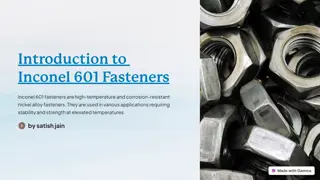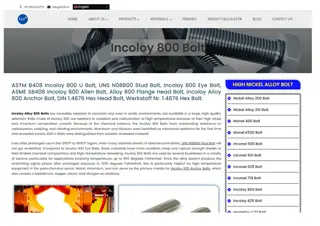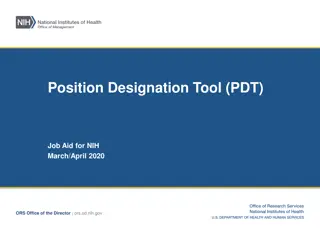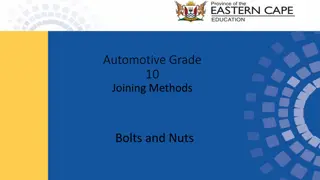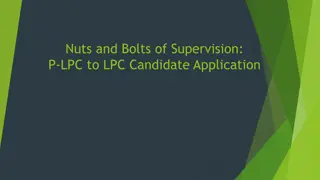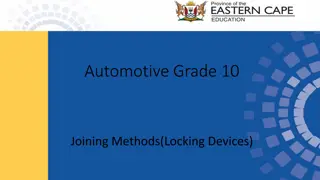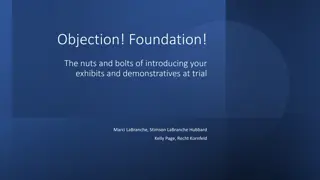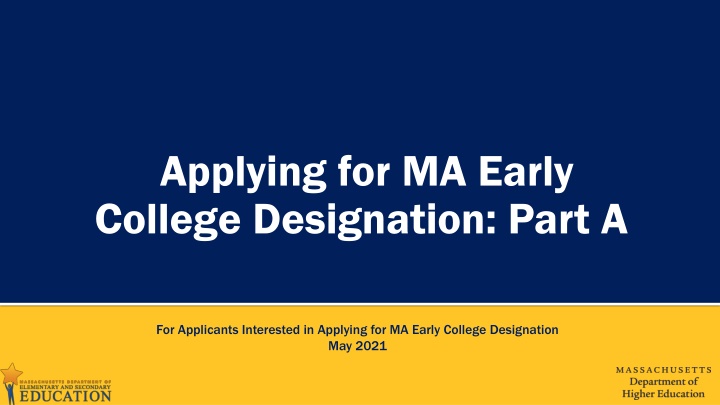
Promoting Equitable Access to Higher Education: MA Early College Designation Overview
Learn about the benefits and criteria for applying for the MA Early College Designation, which prioritizes historically underserved students by offering structured study programs that increase college success and readiness. Discover how early college programs can lead to higher degree completion rates and career opportunities for students.
Download Presentation

Please find below an Image/Link to download the presentation.
The content on the website is provided AS IS for your information and personal use only. It may not be sold, licensed, or shared on other websites without obtaining consent from the author. If you encounter any issues during the download, it is possible that the publisher has removed the file from their server.
You are allowed to download the files provided on this website for personal or commercial use, subject to the condition that they are used lawfully. All files are the property of their respective owners.
The content on the website is provided AS IS for your information and personal use only. It may not be sold, licensed, or shared on other websites without obtaining consent from the author.
E N D
Presentation Transcript
Applying for MA Early College Designation: Part A For Applicants Interested in Applying for MA Early College Designation May 2021
Early College Works A random assignment study performed in 2014 on a sample of 4000 students across 19 early college high schools in North Carolina shows early college students are almost 2x as likely to earn a degree for all sub-groups % of Students Earning any Postsecondary Credential by 8 years after 9th grade (North Carolina) 40 37 35 31 30 30 26 25 22 20 18 15 15 15 Similar results have been achieved in other states as well 10 5 0 All Under-rep. Minority First-gen. college going Econ. Source: January 2014. The Impact, Costs, and Benefits of NC s Early College Model, Presentation by Edmunds, J., Unlu, F., Tsai, T., and Glennie, E.; SERVE Center, UNC Greensboro, NC. students Disadvantaged Lottery Control ECHS 2
Defining Early College in MA MA Early College provides a structured program of study and supports that increases college success and career readiness, prioritizing students historically underserved in higher education. Cohorts of students: Take at least 12 credits of strategically sequenced college courses during their regular (or intentionally redesigned and integrated) high school day, at no cost to themselves or their families Receive enhanced academic and non-academic guidance and support prior to beginning, and during, college coursework to ensure that they both successfully complete rigorous courses and thrive in the college environment Learn how their guided academic pathways are related and connected to career opportunities Benefit from being part of an Early College community that eases the transition from high school to college Graduate from high school with a significant number of college credits, habits, and skills needed to be successful in college and career, increasing the likelihood they will continue with college after high school and reducing the cost and time to degree completion. 4
Designation Promotes More equitable access to higher education for underserved students Alignment between K-12 schools and local public institutions of higher education (IHEs) Enhanced career advising (MyCAP) Immersive college exposure for secondary students High school realignment and redesign Potential industry partnership/support for schools State-convened community of practice 5
Once Designated, Programs Will have access to technical assistance, and the EC community of practice, including bi-weekly check ins and topically relevant seminar series Will have access to Data Dashboards of their programs, to assist in determining whether your program is meeting state and partnership objectives Will begin a 5 year annual reporting cycle, with annual reporting, site visits, and a cumulative program review at the end of the cycle Will receive the opportunity to apply for state funding, as it arises Will receive the opportunity to apply for state funding, as it arises 6
Timeline of Designation Process May 3rd: Application and Companion Document June 30th: Letter of Intent due Summer 2021: Office hours and TA August 27th: Part A applications due _____________________________________________________ October 2021: Announcement of applicants moving onto Part B, application sent to applicants directly December 2021: Part B Applications due Winter 2021-2022: Interviews held March 16, 2021: Recommendations for Designation made to ECJC Companion Document available online 7
Submitting the Application Both Part A and Part B applications are within Alchemer (survey instrument). Questions are sorted by guiding principle Alchemer Letter of Intent Letter of Intent, Part A Part A, and Part B Part B to be submitted electronically Capabilities to save and return and download responses No question is "required" so that applicants can move forward and backward, but expectation is that all questions are completed If file attachments are too large to download, please email them to Rebekah.Barr@mass.gov
Application Overview Part A Part A: Part A: Designation Criteria related to planning Uploading of plans and sharing of intentions and program design Technical assistance Guiding Principles PLC begins May 18th Part A Timeline: Part A Timeline: Application available online Summer 2021: Office hours and TA August 27th: Part A applications due 9
Narrative Descriptions and Overview Part A requires descriptions and narratives of planning and intentions Describe the program s initial plan for outreach and prioritized recruitment of students who are traditionally underrepresented in higher education Upload the program s preliminary course scope and sequence and indicate how the college coursework meets MassCore Part A applications should indicate a programs dedication to developing a program that meets the five Guiding Principles 10
Application Overview: Part B Part B: Part B: FinalDesignation Criteria Uploading evidence of materials Technical assistance Partnership Interviews held with department staff Part B Timeline: Part B Timeline: October 2021: Announcement of applicants moving onto Part B, application sent to applicants directly December 2021: Part B Applications due Winter 2021-2022: Interviews held March 16, 2021: Recommendations for Designation made to ECJC 11
Overview of Guiding Principles Overview of Guiding Principles
Some Highlights from Guiding Principle 1: Equitable Access EC program should be open to all students. Students should not be excluded from participation based on prior or current GPAs, test scores, or placement scores. Whenever possible, students should not be excluded based on prior disciplinary records Enrollments should not rely solely on teacher recommendations or other highly subjective processes Programs should conduct prioritized outreach, recruitment, and enrollment of populations underrepresented in higher education (vs. open enrollment to all with no intention) 13
Some Highlights from Guiding Principle 2 Guided Academic Pathways The scope and sequence of the college coursework must allow students to meet MassCore and MassTransfer requirements and earn a minimum of 12 college credits Programs should design on-ramps and preparatory academic work for students to access multiple measures of college readiness for coursework All students must participate in MyCAP Program coursework and related activities and supports take place during the school day 14
Some Highlights from Guiding Principle 3 Enhanced Student Support Programs should identify potential challenges and corresponding supports for targeted EC students Programs should plan both academic and non-academic supports: i.e. tutoring, counseling/advising, peer mentors, Programs should plan to integrate staff support from both institutions 15
Guiding Principle 4 Connections to Careers Programs should design a college and career counseling plan (utilizing MYCAP) that includes early career development, career and postsecondary education exploration, employability skills, and labor information in ways that assist Early College students in connecting college coursework and plans to a fulfilling career choice. Programs should think strategically about what connections with possible area employer partners will benefit their Early College program 16
Guiding Principle 5 Effective Partnerships Applicant partners should be fully integrated in the program work Partners should identify key costs related to starting and sustaining the program Partners should identify program leadership at each partner institution, as well as any other major stakeholders For each proposed pathway, partners should consider graduation requirements, course taking requirements, pathways to any relevant credentials, and transferability 17
Technical Assistance NS4Ed Joseph Goins jgoins@ns4ed.com Office hours Access to resource site Webinars Community of practice/online forums www.MAEarlyCollege.com Password: MAECP
Early College Team Dr. Kristin Hunt Statewide Director of Early College programs Kristin.E.Hunt@mass.gov http://www.doe.mass.edu/c cte/ccr/hqccp/ Rebekah Barr Early College Program Specialist Rebekah.Barr@mass.gov Yaw Asante-Bio LEE Fellow https://www.mass.edu/strat egic/earlycollege.asp Pierre Lucien SDP Fellow 19
Q&A Q&A







